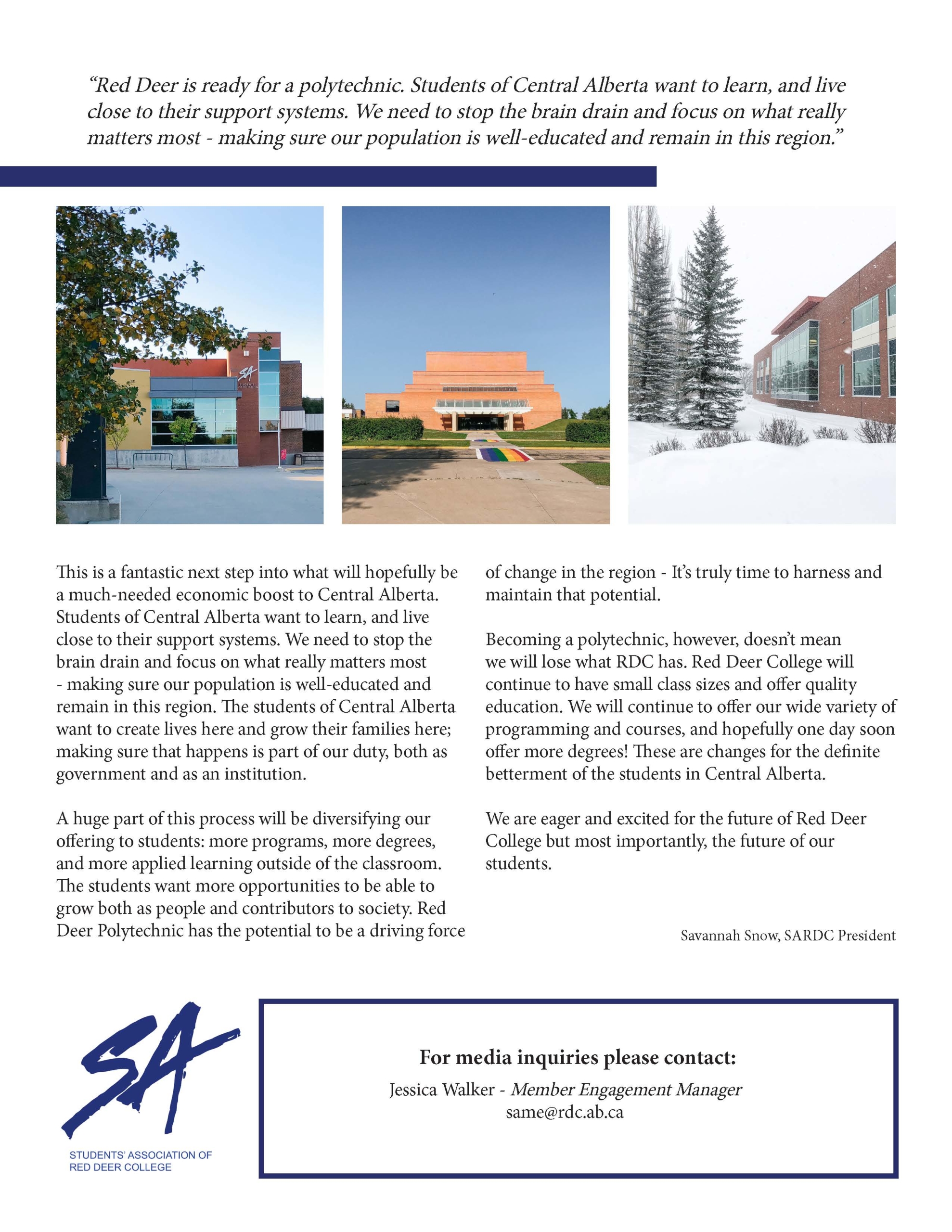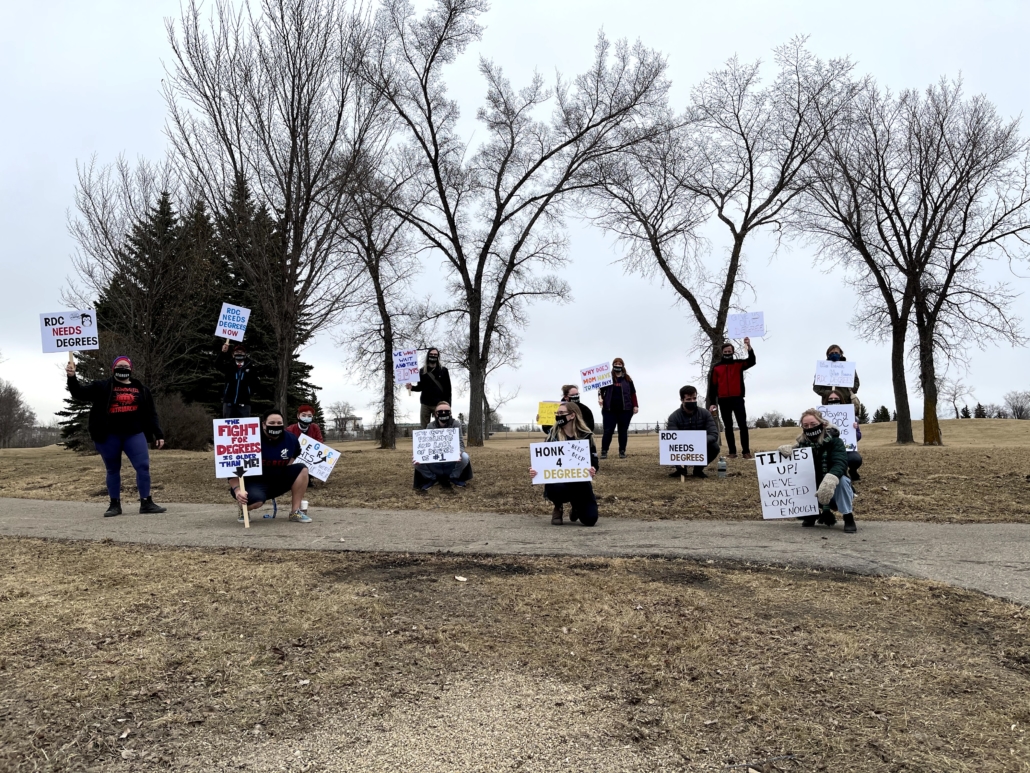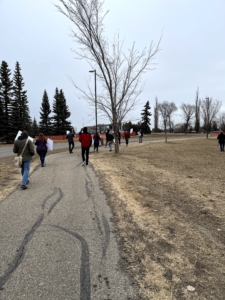How to Incorporate Equity, Diversity, and Inclusion into Your Daily Life
By: Shannon Humphrey
What is EDI?
Everywhere we go we are hearing more and more about EDI initiatives, committees, and events but what is EDI?
EDI stands for EQUITY, DIVERSITY, and INCLUSION. Ultimately, equity is the goal, diversity is the fact, and inclusion is the action. Equity comes first in the acronym because it is the guiding principle and end goal.
Where do I start?
Start with you! It is common to think an equitable, diverse, and inclusive models of behavior has to do with others but EDI has quite a lot to do with ourselves. Before you can actively practice and integrate EDI in everyday life, you first must understand who you are and how you exist in the world. It is important that we start with ourselves.
For some this understanding of self might seem like an entirely overwhelming concept that is difficult to navigate. Consider how you would label yourself on the diagram below as a starting point.

The more comprehensive your understanding of self, the closer you get to your most authentic self. It is much easier to practice EDI when you start from a place where you are unapologetically comfortable as your most authentic self. Only once you understand how you exist in the world can you truly understand how others exist in the world. That is the most difficult part of practicing EDI in everyday life. EDI is so much more than simply coming up with and implementing a model of behaviour, it is also a journey of self discovery that takes us in unexpected directions and down paths we never thought possible.
This journey of self-discovery and understanding is called our intersectional identity. Intersectionality is an analytical framework for understanding how aspects of a person’s social and political identities combine to create different modes of discrimination and privilege. The term was conceptualized and coined by Kimberlé Williams Crenshaw in a paper in 1989 and is illustrated by the diagram below.

Ok, I know myself. Now what?
The next step is seeking to understand. Once you have figured out how you exist in the world, now it is time to consider how those around you and others exist in the world. At this stage you must practice hearing, seeing, and validating others. However, before you can do this you must understand what each element of EDI means individually.
Look no further, here are some definitions:
Equity – The fair and respectful treatment of all humans recognizing an obligation to provide safe spaces and barrier free environments. Equity involves the reduction of disparities and ensures that everyone has barrier free access to opportunity, resources, and supports that fit their needs. Equity goes beyond simply acknowledging the existence of inequalities and recognizes that those inequalities are deeply rooted in historical and contemporary injustices. Equity accounts for the fact that not everyone is made equal and accounts for differences. For those of you who are visual learners, here is a picture that explains equity.

Diversity – Acknowledges the existence differences between individuals. The goal of diversity must be to recognize, value, and celebrate those differences rather than trying to eliminate them.
Inclusion – A set of measures that can be integrated into everyday life that ensure all people feel safe, welcome, and valued as their most authentic self. Inclusion is about creating safe spaces for diversity to thrive. In other words, the means of recognizing, valuing, and celebrating difference.
EDI – Most simply put, EDI is a journey of growth toward humanity. It aims to challenge and destigmatize stereotypes and unconscious biases to ultimately eradicate prejudice, discrimination, and marginalization to make the world a better and more equitable place for all. Equity is the goal, diversity is the is the fact, and inclusion is the action.
See, Hear, Validate
How can you practice EDI in your daily life? My guess is that you already are in one way or another.
Since the goal is to seek to understand, this can be as simple as a conversation. If you are sharing your experiences with others and explaining how you exist in the world while listening and learning about how they exist in the world, you are already seeking to understand and thus practicing EDI. In the grand scheme of things, a conversation should be relatively simple and come naturally. Just remember this stage is all about hearing, seeing, and validating others. However, it is also about being visible to be seen, using your voice to be heard, and validating your own identity and feelings. Yes, psychology students, I am referring to achieving self actualization on Maslow’s Hierarchy of Needs.
Maslow’s Hierarchy of Needs is an excellent example of where critical thought through an EDI lens comes into play to shed light on some local history that indicates there is more to the story. Did you know that Maslow spent six weeks living at Siksika, a Blackfoot Reserve in Alberta in the summer of 1938? His time there conceivably challenged his early hypotheses and shaped his theories that influenced the framework for the hierarchy of needs. While Maslow’s Hierarchy of Needs focuses on the individual, the Blackfoot way of life offers an alternative framework that focuses on the community. Self-Actualization as a word or phrase does not exist in the Siksika language, but The Blackfoot word niita’pitapi, meaning “someone who is completely developed, or who has arrived,” is used in reference to a community who leaves no one behind and is engrained in the cultural teachings of the Siksika Nation. Moral of the story? Part of practicing EDI in your everyday life is applying critical thought to history and the narratives that are given to us from only one perspective. What about the other sides or versions of the story?
As students we have options that we can take in our course load. One of the best ways to practice EDI in your every day life is to learn about it. Take courses that interest you! Take courses that provide content and context on the things you want to learn more about. Use your time here to your advantage and learn about whatever you want to learn about. That is what your options are for. This is a great way to learn more about intersectional aspects of identity and the things that influence EDI. Your instructors are a great resource as are your librarians, your student services, and of course your SA.
The Simple Things
Are you still feeling overwhelmed and like there is a lot to learn? No problem! This is the part where you are required to practice a little bit of self compassion and self empathy. Give yourself a break and allow room for error. We don’t get good at things overnight, we must practice, grow, and continue learning. The point of practice is to make room for troubleshooting and strive for improvement. Always remember that it is the fact that you are trying that really matters. If you mess it up, that is okay, no one is expecting perfection. While it is important to own it when we do mess up, it is equally as important to learn from it and ultimately move forward a more aware and a better more informed version of yourself. Your efforts are appreciated, valued, and important!


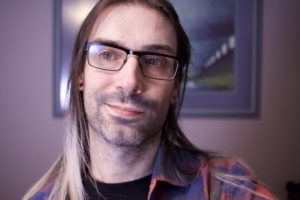 I would like to acknowledge that the Students Association operates on Treaty 7, Treaty 6, and Métis ancestral lands, which are home to many Indigenous peoples. I have been a part of the RDP community for a number of years, and have had four different majors during that time, proving that you don’t need to have a clear and defined path as soon as you enter post-secondary schooling. I’m in my 4th year of my BA Psychology program through the University of Calgary. One of the main advantages that I can offer to students is that by being a long term student at RDP I have a great understanding of what resources, opportunities, and programs are available to student members, in addition to the struggles that they face as part of their education. This means that a large part of what I will be doing at the Students Association will be to help advocate for student’s mental health resources and letting students know that there are various learning supports available to them. While making sure to advocate for the Polytechnic students’ voice in the province and nationally. Over the past few years you might have found me helping students in the library as a peer tutor at the Writing Skills Centre, visiting classrooms and helping organize the Agora Undergraduate Conference, editing papers for the Agora Journal, and being the student voice on the School Council. If you see me on campus I’m more than willing to stop and chat, especially if it ends up being an issue that affects your education.
I would like to acknowledge that the Students Association operates on Treaty 7, Treaty 6, and Métis ancestral lands, which are home to many Indigenous peoples. I have been a part of the RDP community for a number of years, and have had four different majors during that time, proving that you don’t need to have a clear and defined path as soon as you enter post-secondary schooling. I’m in my 4th year of my BA Psychology program through the University of Calgary. One of the main advantages that I can offer to students is that by being a long term student at RDP I have a great understanding of what resources, opportunities, and programs are available to student members, in addition to the struggles that they face as part of their education. This means that a large part of what I will be doing at the Students Association will be to help advocate for student’s mental health resources and letting students know that there are various learning supports available to them. While making sure to advocate for the Polytechnic students’ voice in the province and nationally. Over the past few years you might have found me helping students in the library as a peer tutor at the Writing Skills Centre, visiting classrooms and helping organize the Agora Undergraduate Conference, editing papers for the Agora Journal, and being the student voice on the School Council. If you see me on campus I’m more than willing to stop and chat, especially if it ends up being an issue that affects your education.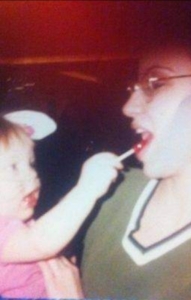 I was born here in Red Deer at the local hospital. My mother was very young – only 20 years old. My mother worked very hard – at this point in her life she had three different part-time jobs and was attempting to complete her pre-law courses at then-RDC. My arrival forced her to drop out. Shortly after, she became addicted to meth and cocaine. Things at home began to spiral.
I was born here in Red Deer at the local hospital. My mother was very young – only 20 years old. My mother worked very hard – at this point in her life she had three different part-time jobs and was attempting to complete her pre-law courses at then-RDC. My arrival forced her to drop out. Shortly after, she became addicted to meth and cocaine. Things at home began to spiral. For my seventh birthday, my grandma picked me up and took me to Sylvan Lake to spend time with the family. I returned to my foster home with my gifts. My foster mom sat me down at the table and grilled me with questions about what was said during the day. When I didn’t give her an answer she liked, she would take a pair of scissors and cut up one of my presents. I received a teddy bear with angel wings from my grandma. Watching that woman cut the wings off that bear will haunt me forever. Shortly after this, she called my grandma to inform her that she was hitting me often, and there was nothing my grandma could do about it. Luckily, there was a happy ending to this particular story – my social worker rescued my brother and I from the home, terminated their foster license, and banned them from adopting any children from the welfare system. I returned to my original foster home with my little brother in tow.
For my seventh birthday, my grandma picked me up and took me to Sylvan Lake to spend time with the family. I returned to my foster home with my gifts. My foster mom sat me down at the table and grilled me with questions about what was said during the day. When I didn’t give her an answer she liked, she would take a pair of scissors and cut up one of my presents. I received a teddy bear with angel wings from my grandma. Watching that woman cut the wings off that bear will haunt me forever. Shortly after this, she called my grandma to inform her that she was hitting me often, and there was nothing my grandma could do about it. Luckily, there was a happy ending to this particular story – my social worker rescued my brother and I from the home, terminated their foster license, and banned them from adopting any children from the welfare system. I returned to my original foster home with my little brother in tow.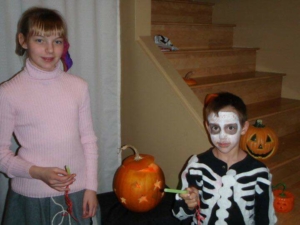 The morning of my 18th birthday, I left. Perhaps it might be perceived that I was kicked out – they did indeed sit me down and inform me that I wouldn’t have a place in their home once I was 18. However, I didn’t want to be there if I didn’t have to be. I returned the following Christmas with gifts for the family; They wouldn’t let me inside and forced me to talk to my little brother on the front step. I haven’t spoken to them since. My brother is 19 now and though I did my best to keep in contact with him, he won’t talk to me now. I hope someday I get to explain myself and apologize for leaving him. Our adopted parents were very good to him, didn’t abuse him the way they did me, and are paying for his schooling. I’m glad they were there to take care of him.
The morning of my 18th birthday, I left. Perhaps it might be perceived that I was kicked out – they did indeed sit me down and inform me that I wouldn’t have a place in their home once I was 18. However, I didn’t want to be there if I didn’t have to be. I returned the following Christmas with gifts for the family; They wouldn’t let me inside and forced me to talk to my little brother on the front step. I haven’t spoken to them since. My brother is 19 now and though I did my best to keep in contact with him, he won’t talk to me now. I hope someday I get to explain myself and apologize for leaving him. Our adopted parents were very good to him, didn’t abuse him the way they did me, and are paying for his schooling. I’m glad they were there to take care of him.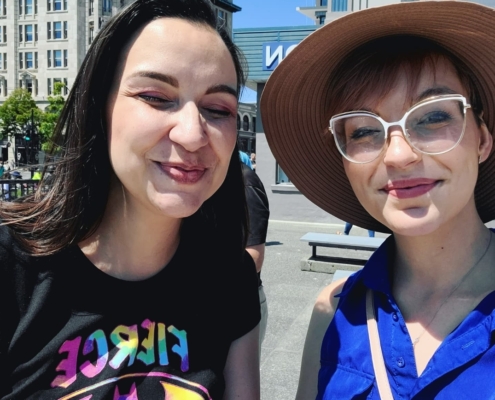
 I’m sure you’re wondering how this could be life changing…well it’s because you are joining a group with other students who have similar interests and values as you. You will spend an abundance of time with these individuals and will create lifelong bonds. You and these other students will share a unique experience, and no one can take that away from you. Aside from friendships, being a member or Executive of a student group will help develop your leadership skills, expand your resume, and provide many networking opportunities. As far as I can tell, there are no negative aspects of joining a student group!!
I’m sure you’re wondering how this could be life changing…well it’s because you are joining a group with other students who have similar interests and values as you. You will spend an abundance of time with these individuals and will create lifelong bonds. You and these other students will share a unique experience, and no one can take that away from you. Aside from friendships, being a member or Executive of a student group will help develop your leadership skills, expand your resume, and provide many networking opportunities. As far as I can tell, there are no negative aspects of joining a student group!!
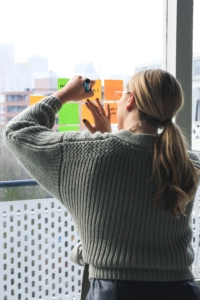

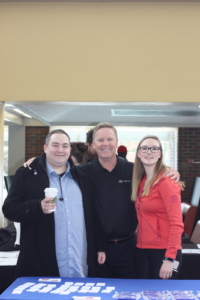
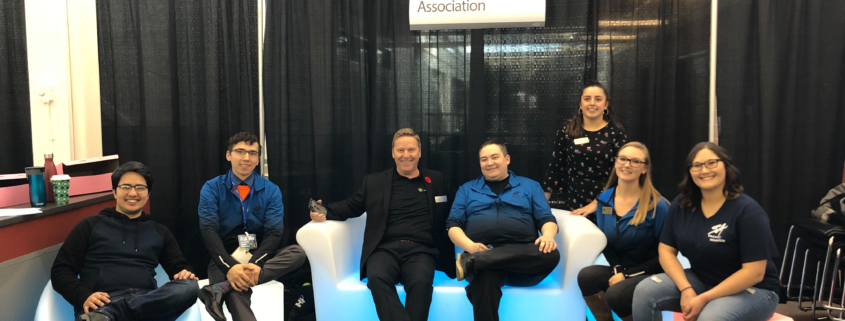
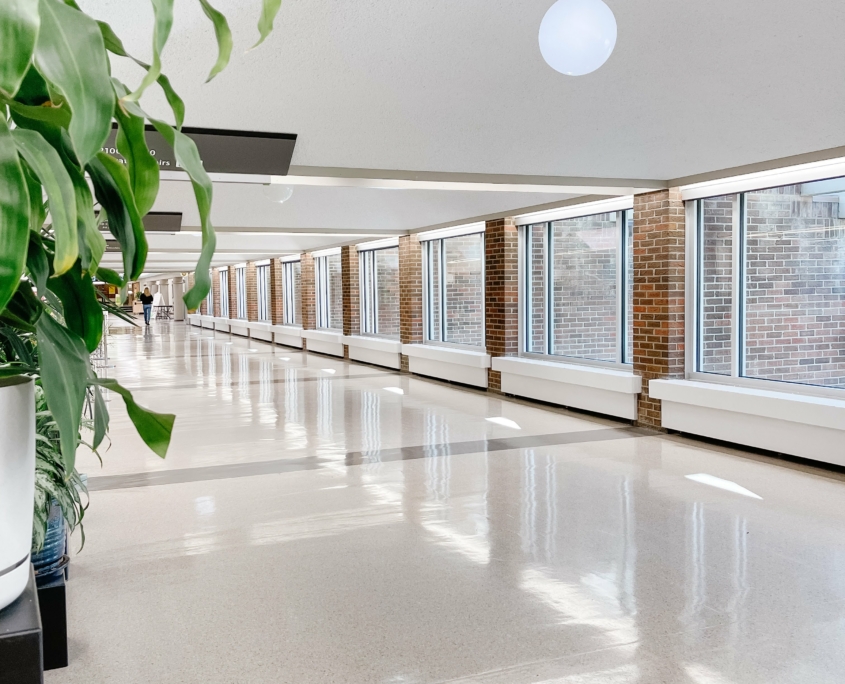
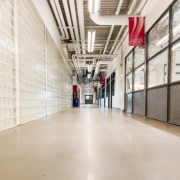

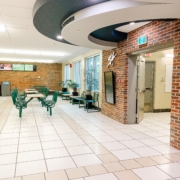
 Our Vice President External, Logan Beauchamp, has resigned from his position with the Students’ Association of Red Deer Polytechnic, effective immediately. We thank Logan for his service to our Members and wish him well in his future endeavours.
Our Vice President External, Logan Beauchamp, has resigned from his position with the Students’ Association of Red Deer Polytechnic, effective immediately. We thank Logan for his service to our Members and wish him well in his future endeavours.